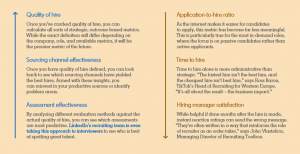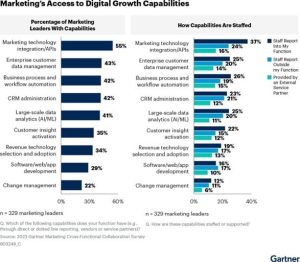— October 5, 2018

Will AI Take Over?
As time goes by, artificial intelligence (AI) will play an increasingly vital role in sales. In fact, as some companies relegate some of the more straightforward selling tasks to AI, lower level sales jobs are beginning to dry up.
Just think about how thousands of retail salespeople have lost their jobs as Amazon and other e-commerce sites have taken over.
These websites are not just order-takers. Their complex algorithms enable them to cross-sell. For instance, when you search for a book, you’ll see a message saying “Customers who bought this item also bought [an array of other tempting items].” They also upsell by suggesting “Compare similar items.” Usually, you’ll see some items that are bigger and better.
It would be challenging for a retail salesperson to keep track of all the information necessary to cross-sell and up-sell as efficiently as these algorithms.
Feats AI has conquered beyond the sales arena make people nervous that machines could gobble up many white collar jobs. For instance, IBM’s Watson, a supercomputer, beat Ken Jennings at Jeopardy. Jennings had previously had the longest undefeated streak on Jeopardy ever, starring in 74 consecutive shows.
Given that AI can outdo the best and the brightest among us, it’s understandable that salespeople are concerned that it will supplant their persuasive powers.
Routine Task? AI, You’re Hired
So where does AI fit into the sales process? It can play a starring role in lead qualification, which consumes 80 percent of sales reps’ time. For instance, AI tools provide business insights and personality profiles for target customers and can follow up on leads using two-way email or text messages. Also, AI can make phone calls easier and more productive by suggesting responses during conversations.
Thus, by leveraging AI, salespeople can not only increase the number of qualified leads but also stop wasting time on those that are unqualified.
Humans, Please Apply
While AI can and will take over predictable sales functions, the best salespeople will still have jobs, handling tasks that require a human touch.
Here’s why. Only humans can:
- Build Relationships
Since B2B purchases are typically large, salespeople must be able to earn the buyer’s trust and build rapport with them. After all, relationships are essential for differentiating similar products and solutions.
AI can perform some trust building functions, such as being responsive and providing vital information. However, it cannot find common interests to chat about that help make the conversation “human.” A salesperson, on the other hand, may be able to share an interest, such as sports or travel. They can share a joke or laugh at one the buyer tells.
- Use Emotional and Social Intelligence
B2B buying decisions are emotional, and people like to work with others who care about them. The best reps empathize with customers’ problems and are excited to help them explore opportunities.
Not surprisingly, AI doesn’t care.
Also, AI is less likely to pick up meaning that’s conveyed by tone of voice, to read between the lines or recognize sarcasm. A salesperson, however, understands these subtleties, picking up on prospects’ cues even when they’re not stated in black and white.
- Think Creatively
In B2B sales, reps often need to be able to solve unique, complex problems. That takes creativity.
Because AI needs to see patterns of behavior to work correctly, it’s not good with the one-offs. So when a new situation arises, AI may be unable to come up with creative solutions. That’s when a live salesperson who can think outside the box needs to step in.
- Demonstrate Personality
“The worst fault a salesman can commit is to be a bore,” said David Ogilvy. AI may know more than any salesperson, but it doesn’t have a personality.
There are pros and cons to AI and humans. The beauty, however, is that we don’t have to choose between them.
AI is not sales people’s competitor. It’s their force multiplier. It enables them to escape the drudgery of mundane selling tasks, so they can invest their time building relationships, handling exceptions and creatively answering strategic questions. The salesperson can leverage AI’s knowledge while adding the human touch that seals the deal and builds long-term personal relationships.
Business & Finance Articles on Business 2 Community
(144)
Report Post





